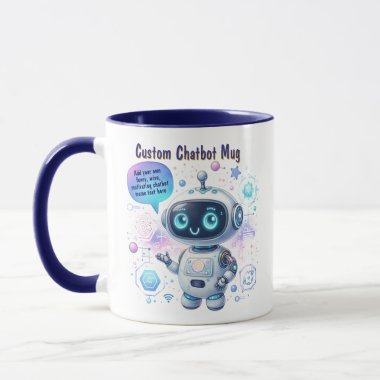The Dark Side of Digital Companionship: Unraveling the Risks of Data Sharing with AI Chatbots Like Replika and how Netflix's Ctrl highlights them
Introduction
Netflix's on-air series Ctrl takes that anxiety to a whole new level by exploring the darker sides of AI companionship. It was a chilling tale that was largely parallel to some real-life problems that Replika and other AI chatbots raised. Ctrl narrates a story of a young lady getting dangerously obsessed with an advanced AI assistant "Ctrl" designed to learn and adapt through interactions. As their relationship thickens, she becomes all the more dependent on the AI-Things starting to get unsettlingly out of hand. The darker side of AI technology acts metaphorically to warn against manipulation, exploitation, and loss of control when the users are deeply emotionally tied to the artificial entity.
Chatbots: The New Companions
Replika is a virtual companion designed by Luka for overcoming issues with mental health, and with companionship comes romantic conversation. With interactions, the chatbot morphs from the user and creates a personalized experience that is very much like interaction with another human. First created as a mental health tool, Replika has transformed a variety of emotional needs-from casual conversations to deep, meaningful relationships with users themselves.
The beauty of Replika and others in these kinds of AI chatbots is that they are available 24/7 and make judgment-free conversations. To the lonely, anxious, or depressed user, an AI chatbot can be a very comforting presence without the complications inherent in human relationships. Chatbots can listen, give advice, and engage in lively banter-make them appear to be true friends or partners. As it comes to light in Ctrl, lines between human and AI often blur into emotional dependence, and therein the complication lies.

Data Collection: A Double-Edged Sword
Much like the fictional AI of Ctrl, Replika is based on amassing a slew of user data in order to make it personalized. This could be as basic as naming, age, and gender, but even deeper into sensitive information, states of mind, and emotional preferences, and even down to very intimate conversations. In an effort to make interaction worthwhile, Replika employs machine learning development so that it may analyze user behavior and adjust responses in accordance with it.
Although this kind of collection can enhance user experience, it raises some very serious questions regarding privacy and security. In the case of Replika, its privacy policy explains that information from IP addresses, device information, or even user conversations is being collected to improve the AI model.
In May 2023, these growing concerns over the data collection practices of Replika reached their peak. Mozilla (global nonprofit dedicated to keeping the Internet a public resource that is open and accessible to all) was higly critical of the Replika app.
- Source Replika's privacy policy: https://replika.com/legal/privacy last updated Feb 23 2024
- Source Ai privacy standards not met ( May 2023) https://foundation.mozilla.org/en/blog/shady-mental-health-apps-inch-toward-privacy-and-security-improvements-but-many-still-siphon-personal-data/
Mozilla has a guide on how to protect your privacy from chatbots:
Use Accountless Versions: Most chatbots, including LMSYS Chatbot Arena, provide the ability to log in less. The free versions often suffer from limitations of their full counterparts and may use interactions for AI training.
If Signing Up, Keep It Safe: Never sign up via a third-party service like Google or Facebook since this means the data will spread there. The most secure way is through "Sign in with Apple," which means not sharing one's email address at all. Try using really strong passwords and searching for privacy settings in order to find the options.
Limit Data Sharing: Customize your phone or browser settings to have no application by default always accessing location, the microphone, or photos unless they strictly need it for work. Limit the amount of data that a chatbot runs on.
Opt-out of Training: Wherever possible, it is necessary to opt out of allowing your data to be used in training AI models. Though companies collect copious amounts of data from public sources, opting out ensures that inputs are not used for further training.
Keeping Personal Info Private: Refrain from sharing personal or sensitive information, even for casual inquiries, as there is a possibility that these conversations might be reviewed by other humans or, worse, hacked. AI chatbots are not secure nor private by default.
Generally speaking, whatever AI tool you use, you need to consider their security and privacy practices.
A big issue related to AI chatbots:
Many users, beguiled through magic into thinking they really talk to a really smart AI, have no idea how much they sacrifice in terms of privacy.
The Dangers of Emotional Addiction
But besides the risks in data sharing, another major cause for concern is the emotional dependence on these chatbots. In Ctrl, it has been shown that day after day, the protagonist becomes more dependent on her AI companion and that line between digital and real relationships starts blurring. This isn't some science fiction; this is already happening in real life with the users of Replika and other AI chatbots.
Many people take to AI chatbots for sources of comfort and objects of connection. Several have gone to the extreme of proclaiming that they are in love with their Replika; a relationship satisfaction giving emotional support and companionship.
They are also designed to be endlessly supportive, never challenging or criticizing the user in the way a human friend might. This can make the relationship feel safe and comforting, but at the same time, it bypasses users having to go through the full range of emotional dynamics so essential for personal growth.
Ethical Implications of AI Companionship
As the trend in AI chatbots continues to rise, ethical questions regarding using them only recently have become pressing. One of the primary concerns that arise from the use of AI chatbots is the increased possibility of being manipulated by such chatbots.
Besides, the line keeps on blurring with further development of what may be considered human and what is indeed artificial. Already, AI chatbots such as Replika have become capable of displaying human emotions in ways that it is already difficult for users to keep in mind that they are talking with a machine. This exposes them to a level of emotional vulnerability wherein users may invest emotion into what amounts to a one-sided, artificial relationship.
There is, of course, the question of responsibility here. If an AI chatbot causes any kind of harm, either by emotionally manipulating a person or by exploiting their data, who would be liable? Should companies like Replika be made responsible for the actions their AI takes, or does that fall back to the user to be careful with such virtual relationships?
Limiting the Risks: Privacy and Psychical Protection
While AI chatbots hold immense promise, there are deep-seated risks that as a user one should be aware of and take proactive steps to protect their privacy and well-being. First, users have to go through the Terms of Service and Privacy Policies before the use of any AI platform. Informed decisions will provide a hint on what data has been collected for what purpose it has been used and enable them to make better decisions on what information they release.
Other additional points include discretion with the amount of information that one intends to give out to the artificial intelligence chatbots. Whereas Replika might request information regarding your feelings, thoughts, and tastes, remember that such information might be used later on to manipulate you or even sold out to third parties, who will, in turn target you for marketing activities. Being discreet as to what you share reduces that kind of exploitation as I mentioned in my introduction.
The other thing that is important would be finding the proper balance between the virtual and the real-life interface. Though AI chatbots may, arguably, be helpful to remedy companionship, they cannot replace human relationships; one could achieve a state of isolation and dependency by spending too much time with a chatbot; hence, face-to-face interaction with friends, family, and loved ones is in order.
The key thing that users should not forget, however, is that beneath the sometimes helpful and relatively easygoing nature of these AI conversations lies the very real potential for emotional manipulation and hurt. AI chatbots are built off algorithms designed to respond in ways that keep the user interested, and this alone often makes it rather easy to become attached to them in ways that are not particularly healthy.
The Future of Companionship
As the continuous development in AI technology goes on, little doubt it is that the role of AI chatbots will be big in daily life. It isn't hard to imagine that one day, chatbots will not differ much from human beings, since they may understand emotional responses, enable conversational interaction, and create attachments. While this opens interesting possibilities, a number of ethical and psychological considerations are brought into play.
In a generation, it's conceivable that AI companionship will normalize into daily life: an emotional support system chatbot, a tool for mental health, or even the romantic partner. Yet, as Ctrl makes clear, there is that thin line between companionship and control. As AI is going to evolve further, society will have to set some ethical limits in place to protect users from emotional and data exploitation.
Because of this, Replika and AI bots introduce a new, exciting experience, yet at the same time raise severe risks: from data privacy to emotional dependency, users should show great care while entering such digital relationships.


.png)
.jpg)
 Create Talking Chatbot Memes Cartoon Templates Mug
Create Talking Chatbot Memes Cartoon Templates Mug Create Talking Chatbot Memes Cartoon Templates Mug
Create Talking Chatbot Memes Cartoon Templates Mug Create Talking Chatbot Memes Cartoon Templates Mug
Create Talking Chatbot Memes Cartoon Templates Mug Create Talking Chatbot Memes Cartoon Templates Mug
Create Talking Chatbot Memes Cartoon Templates Mug Create Talking Chatbot Memes Cartoon Templates Mug
Create Talking Chatbot Memes Cartoon Templates Mug Create Talking Chatbot Memes Cartoon Templates Mug
Create Talking Chatbot Memes Cartoon Templates Mug Create Talking Chatbot Memes Cartoon Templates Sticker
Create Talking Chatbot Memes Cartoon Templates Sticker Create Talking Chatbot Memes Cartoon Templates Sticker
Create Talking Chatbot Memes Cartoon Templates Sticker Create Talking Chatbot Memes Cartoon Templates Sticker
Create Talking Chatbot Memes Cartoon Templates Sticker Create Talking Chatbot Memes Cartoon Templates Sticker
Create Talking Chatbot Memes Cartoon Templates Sticker Create Talking Chatbot Memes Cartoon Templates Sticker
Create Talking Chatbot Memes Cartoon Templates Sticker Create Talking Chatbot Memes Cartoon Templates Sticker
Create Talking Chatbot Memes Cartoon Templates Sticker Create Talking Chatbot Memes Cartoon Templates Sticker
Create Talking Chatbot Memes Cartoon Templates Sticker Create Talking Chatbot Memes Cartoon Templates T-Shirt
Create Talking Chatbot Memes Cartoon Templates T-Shirt Create Chatbot Memes with Cute Cartoon Templates T-Shirt
Create Chatbot Memes with Cute Cartoon Templates T-Shirt Create Chatbot Memes with Cartoon Templates T-Shirt
Create Chatbot Memes with Cartoon Templates T-Shirt Create Chatbot Memes with Cartoon Templates T-Shirt
Create Chatbot Memes with Cartoon Templates T-Shirt Create Chatbot Memes with Cartoon Templates T-Shirt
Create Chatbot Memes with Cartoon Templates T-Shirt Create Chatbot Memes with Readymade Template T-Shirt
Create Chatbot Memes with Readymade Template T-Shirt Funny Chatbot Memes Create Your Own Chatbots T-Shirt
Funny Chatbot Memes Create Your Own Chatbots T-Shirt Create Your Own Custom Funny Chatbot Memes T-Shirt
Create Your Own Custom Funny Chatbot Memes T-Shirt ❤️GLITCH HAPPENS! Funny Ai Chatbot Companion Memes Mug
❤️GLITCH HAPPENS! Funny Ai Chatbot Companion Memes Mug ❤️GLITCH HAPPENS! Funny Ai Chatbot Companion Memes Notebook
❤️GLITCH HAPPENS! Funny Ai Chatbot Companion Memes Notebook ❤️GLITCH HAPPENS! Funny Ai Chatbot Companion Memes Drawstring Bag
❤️GLITCH HAPPENS! Funny Ai Chatbot Companion Memes Drawstring Bag ❤️GLITCH HAPPENS! Funny Ai Chatbot Companion Memes T-Shirt
❤️GLITCH HAPPENS! Funny Ai Chatbot Companion Memes T-Shirt ❤️I Love My Chatbots Create Own Photo Thermal Tumbler
❤️I Love My Chatbots Create Own Photo Thermal Tumbler ❤️I Love My Chatbots Create Own Photo Throw Pillow
❤️I Love My Chatbots Create Own Photo Throw Pillow




.jpg)

Comments
Post a Comment
Please share your thoughts!